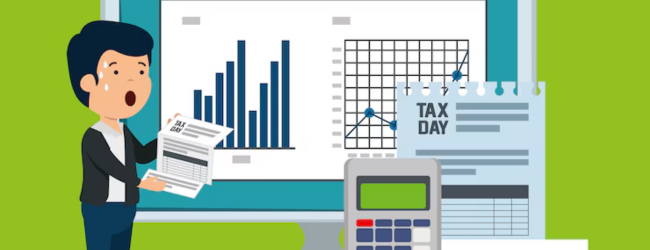Table of contents
In the world of business finance, understanding the nuances of different accounting practices is crucial for efficient operations and strategic decision-making. Two key areas, often confused, are cost accounting and management accounting. While both deal with financial data, their focus, scope, and purpose differ significantly. This comprehensive article will explore the difference between cost accounting and management accounting, highlighting their individual roles and how they contribute to a company’s overall financial health, drawing insights from leading resources like Vedantu.
What is Cost Accounting?

Cost accounting is a specialized branch of accounting focused on capturing a company’s total cost of production. It involves meticulously recording, classifying, analyzing, and summarizing costs associated with various processes, services, and products. The primary goal is to determine the cost per unit of production, identify areas of waste, and control expenses. This information is vital for setting prices, evaluating efficiency, and maximizing profits. Cost accounting is primarily used internally but also provides data for financial accounting.
Key functions of cost accounting include
- Determining the cost per unit: Calculating the expenses for each product or service.
- Controlling costs: Identifying and minimizing waste and inefficiencies.
- Analyzing profitability: Assessing the profitability of different products or services.
- Supporting decision-making: Providing data for short-term operational decisions.
What is Management Accounting?
Management accounting, also known as managerial accounting, is a broader field that utilizes financial and non-financial information to guide management’s decisions. It involves analyzing past data and projecting future trends to help managers make informed choices about business strategy, planning, and performance evaluation. Management accounting is exclusively for internal use and focuses on providing insights for long-term strategic goals.
Key functions of management accounting include
- Budgeting and forecasting: Creating financial plans and predicting future performance.
- Performance evaluation: Assessing the efficiency and effectiveness of different departments or projects.
- Strategic planning: Providing data for long-term business decisions.
- Decision support: Analyzing various options and their potential financial impact.
Cost Accounting vs. Management Accounting: A Detailed Comparison
| Feature | Cost Accounting | Management Accounting |
| Primary Focus | Determining and controlling costs of products/services | Providing information for management decision-making and control |
| Users of Info | Primarily internal (management, production staff) | Exclusively internal (management at all levels) |
| Nature of Data | Primarily historical and quantitative (cost data) | Both historical and future-oriented; quantitative and qualitative |
| Reporting Format | Often detailed reports on costs, variances, etc. | Flexible formats tailored to specific management needs |
| Legal Requirement | May be required for inventory valuation and reporting | Not legally mandated |
| Time Horizon | Short-term operational focus | Short-term, medium-term, and long-term strategic focus |
| Decision Making | Supports operational decisions (pricing, efficiency) | Supports strategic and operational decisions (planning, investment) |
| Scope | Narrower, focused on cost determination and control | Broader, encompasses all aspects of management information needs |
| Mandatory? | Can be mandatory in some industries/reporting needs | Never mandatory |
Elaborating on the Key Differences

- Focus and Purpose: Cost accounting’s central aim is to ascertain the cost of producing goods or services. It breaks down expenses into various categories (direct materials, direct labor, overheads) to arrive at a per-unit cost. This information is crucial for pricing strategies and profitability analysis at a product level. Management accounting, on the other hand, takes a wider view. It utilizes cost accounting data but also incorporates other financial and non-financial information to assist managers in planning, controlling, and making strategic decisions for the entire organization.
- Users of Information: The primary audience for cost accounting information includes production managers who need to control costs, marketing teams for pricing decisions, and sometimes financial accounting for inventory valuation. Management accounting reports are tailored for various levels of management, from operational supervisors needing performance reports to top executives making long-term strategic choices.
- Nature of Data: Cost accounting heavily relies on historical data related to costs incurred. While it may involve some estimations, the core is tracking past expenditures. Management accounting utilizes this historical cost data but also incorporates future projections, budgets, non-financial metrics (like customer satisfaction or market share), and qualitative information to provide a comprehensive view for decision-making.
- Reporting Format: Cost accounting reports often follow standardized formats, detailing cost elements, cost centers, and variances (differences between actual and planned costs). Management accounting reports are more flexible and customized to address specific management needs. They can include budgets, performance reports, break-even analyses, and investment appraisals, presented in formats that are easily understandable for the intended audience.
- Legal Requirement: While financial accounting is legally mandated for external reporting (e.g., to shareholders and regulatory bodies), cost accounting may be required in certain industries for inventory valuation purposes and specific regulatory filings. Management accounting, being purely for internal use, has no legal reporting requirements.
- Time Horizon: Cost accounting typically has a shorter-term focus, dealing with the costs of the current production cycle or operational period. Management accounting has a broader time horizon, encompassing short-term operational control, medium-term budgeting and forecasting, and long-term strategic planning.
- Decision Making: Cost accounting provides the fundamental cost data needed for operational decisions like setting product prices, deciding whether to make or buy components, and evaluating the efficiency of production processes. Management accounting utilizes this cost data, along with other information, to support a wider range of decisions, including capital budgeting, mergers and acquisitions, and overall business strategy.
- Scope: Cost accounting has a narrower scope, primarily focused on the costing aspects of production and operations. Management accounting has a much broader scope, encompassing all financial and non-financial information relevant to management’s planning, control, and decision-making responsibilities across the entire organization.
- Mandatory Nature: As mentioned, cost accounting can be mandatory in specific situations, particularly related to inventory valuation for financial reporting. Management accounting is never legally required; its adoption depends on the organization’s internal needs for effective management.
Key Takeaways
- Cost accounting focuses on determining and controlling the costs of products and services.
- Management accounting uses financial and non-financial information for internal decision-making, planning, and control.
- Cost accounting provides the cost data that management accounting often utilizes.
- Management accounting has a broader scope and a longer-term strategic focus than cost accounting.
- Cost accounting can be legally required in some instances, while management accounting is always voluntary.
- Both are essential for a well-managed and financially sound organization, serving different but complementary purposes.
Conclusion
While both cost accounting and management accounting are vital components of a company’s financial framework, understanding their distinct roles is crucial. Cost accounting provides the detailed cost information necessary for operational efficiency and product pricing. Management accounting takes a broader perspective, utilizing this cost data alongside other information to empower management with the insights needed for strategic planning, performance evaluation, and informed decision-making. Recognizing the difference between cost accounting and management accounting allows businesses to leverage each discipline effectively, leading to better financial control and enhanced strategic outcomes.
FAQs
- Can a person be both a cost accountant and a management accountant?
- Yes, it’s common for professionals to have expertise in both areas. Management accounting often builds upon the principles and techniques of cost accounting.
- Which is more important for a business: cost accounting or management accounting?
- Both are important but serve different purposes. Cost accounting provides essential cost data, while management accounting uses this data for strategic decision-making. The relative importance can depend on the specific needs and focus of the organization.
- Does management accounting only use information from cost accounting?
- No, management accounting utilizes a wide range of financial and non-financial information, including data from financial accounting, sales reports, market research, and operational metrics.
- Is cost accounting more focused on the past, while management accounting is focused on the future?
- While cost accounting primarily deals with historical cost data, it also informs future cost estimations and budgeting. Management accounting has a broader time horizon, analyzing past data to inform future projections and strategic plans.
- What are some examples of decisions that rely heavily on management accounting information?
- Examples include capital budgeting decisions (investing in new assets), make-or-buy decisions, pricing strategies, performance evaluation of different business units, and strategic planning for market expansion.
- How does cost accounting help in controlling costs?
- Cost accounting helps by tracking and analyzing costs, identifying variances between actual and planned costs, pinpointing areas of inefficiency or waste, and providing data for implementing cost reduction strategies.
- Are the principles of cost accounting and management accounting universally applied across all industries?
- While the fundamental principles are generally applicable, the specific techniques and methods used in cost and management accounting can be tailored to the unique characteristics and needs of different industries.
- What kind of reports are typically generated in management accounting?
- Management accounting reports can include budgets, variance analyses, performance reports by department or product line, break-even analyses, cash flow forecasts, and reports for specific strategic decisions like investment appraisals.


